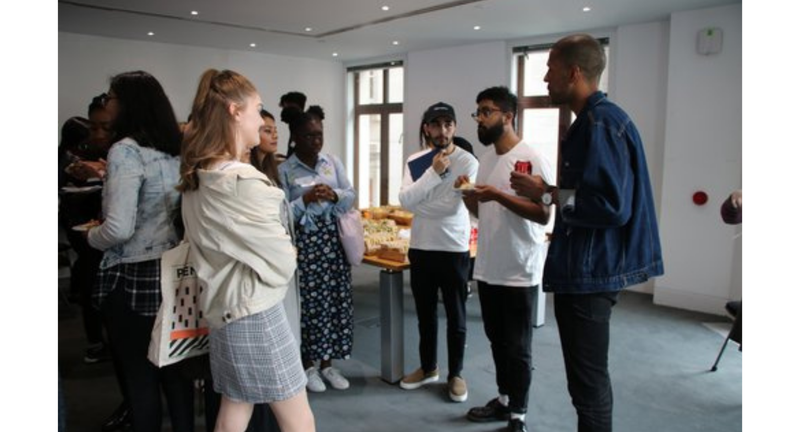
Uptree’s response to Social Mobility Commission: The State of the Nation Report 2021
Every year, the Social Mobility Commission, an advisory body to the Department of Education, publishes its “State of the Nation” report.
In the most recent edition, published in June 2021, the Social Mobility Commissioners looked particularly at the impact of the pandemic on social mobility, and set out a series of reforms that are needed to improve social mobility outcomes across Britain.
This blog will take a look at the report, and some of the key findings from it, as well as demonstrating some of the areas that our work here at Uptree is already putting some of the reforms into action.
The 2021 State of the Nation makes for difficult reading. The impact of the Coronavirus Pandemic is yet to be fully understood, especially in the long term, but it’s becoming clear that the attainment gaps between advantaged and disadvantaged children are getting wider.
The statistics around child poverty are particularly damning: 4.3 million children, almost a third of children in the UK – were living in relative poverty as of March 2020, a 3.7% increase from March 2012. Only 51% of households with a total income of £6-10,000 had internet access (compared to 99% of households with an earning over £40k).
The digital divide is just one factor that highlights the growing inequality among young people in the UK, but one that has been particularly impactful over the last 18 months as life shifted increasingly online, especially when coupled with other factors such as the quality of home working environments.
Despite the report painting a picture of a nation in poor health, it does prescribe seven key pillars to “build back better”. These range from better local investments in schools, digital technology, and early years funding, to raising the profile of social mobility in the workplace and bringing those conversations out of the dark.
The recommendations from the report will go on to inform government policies in the coming year, to varying degrees, but in the case of three of the pillars, Uptree is already laying the foundations.
Pillar 1: Geographic and Location Powers.
Whilst the government has committed to “levelling-up” the UK by investing in hard-to-reach areas, the focus at the moment is on area-wide outcomes, whereas much of the current divide is within the areas themselves; between small towns and larger cities, or even within communities themselves.
One of the positive impacts of the pandemic is that people no longer have to travel for miles to improve their job prospects and as such, being socially mobile is more achievable for everyone regardless of their postcode.

This is something that is key to what we do at Uptree. Our outreach model is localised, we work to connect local schools to local companies, making our work far more impactful on local communities.
Our online platform is accessible to anyone, so students can browse opportunities that are relevant to the area where they live, meaning students don’t have to relocate to chase the job of their dreams.
Pillar 2: Apprenticeships and Adult Skills
Apprenticeships can be invaluable when it comes to social mobility, but the report found that the pandemic has exacerbated the extent to which apprenticeships are failing to reach their social mobility potential, with higher level apprenticeships often going to students from middle-class backgrounds.
Whilst work still needs to be done to get traineeships and apprenticeships into social mobility cold spots, Uptree’s platform hosts various opportunities from companies all over the UK. By hosting our partner’s opportunities, from apprenticeships and traineeships, to work experience days and application masterclasses, Uptree helps to ensure that students from disadvantaged backgrounds get the boost they need to access and be successful in getting onto these schemes.
Moreover, Uptree’s partnership with schools helps to upskill teachers and students in understanding why sometimes an apprenticeship can be a favourable route.
Pillar 3: Work and Career Progression
The State of the Nation report calls upon employers to widen their talent pools by targeting schools and further education colleges in social mobility cold spots.
By gaining knowledge of their workforce and the barriers that may exist, avoiding hiring biases, and focusing on transferable skills and potential rather than ‘polish’ in an application, employers can not only diversity their workforces, but have a better understanding of the changes that they need to make to become better, more supportive, employers.
At Uptree, we target a range of diverse young people with our outreach, the schools we target have over 20% of their students on free school meals (double the national average) and our work is aimed at helping those students realise their potential and see what’s out there.
Our online Careers Learning Programme courses, which range from taster sessions in various fields, to training on essential skills for the workplace, are aimed at upskilling our students, and giving them the best chance possible at being successful in their applications.

The pillars for building back in the State of the Nation Report resonate strongly with the work that we do at Uptree, and the work we do is strongly guided by our values. One key value that we stand by is Young People First, and this is something that was at the heart of the report. Young people have felt the effects of the pandemic uniquely, and unequally.
Despite their fantastic resilience, a clear message from the State of the Nation report, and from us here at Uptree, is that part of the Covid-19 recovery should be on helping the youth of today build the skills they need to prepare to take on leading roles in the society of tomorrow.
By Uptree
Published on:
Thu 28 Oct 2021